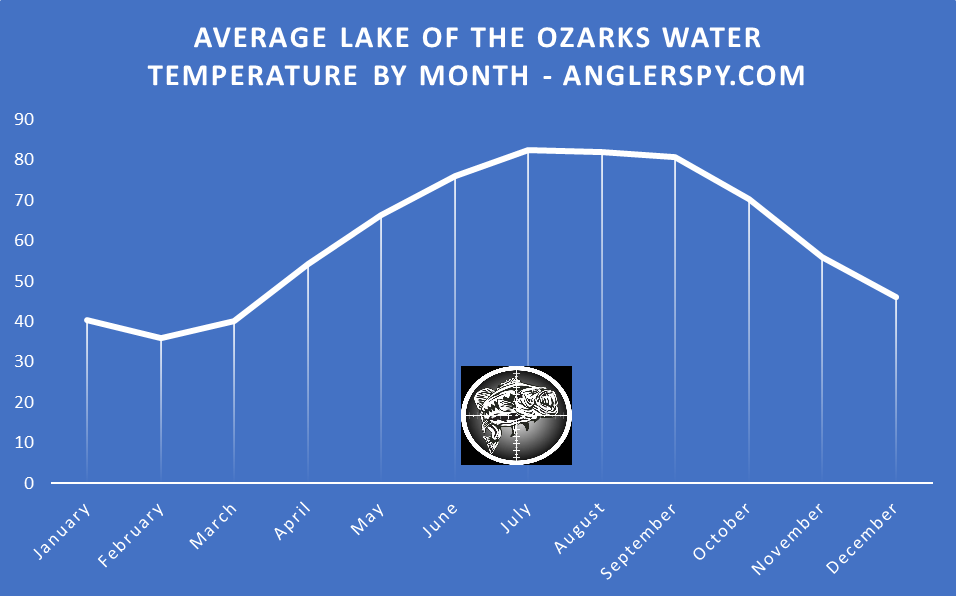Understanding the climate of Lake George is essential for anyone planning a visit or living nearby. Whether you're a tourist, a local resident, or someone interested in climate patterns, knowing the average temperature by month can help you prepare for your activities. Lake George's weather varies significantly throughout the year, offering a unique experience in each season. In this article, we'll explore the monthly temperature averages, seasonal highlights, and tips for enjoying the region's diverse climate.
Lake George is a popular destination for outdoor enthusiasts, history buffs, and nature lovers alike. The area's picturesque landscape and vibrant culture attract millions of visitors annually. Understanding the lake's temperature patterns will help you plan your visit effectively, ensuring you make the most of your time in this stunning region.
This article provides a comprehensive overview of Lake George's average temperature by month, along with practical advice for travelers. We'll cover everything from seasonal highlights to essential packing tips, ensuring you're well-prepared for your adventure. Let's dive in and explore what makes Lake George's climate so captivating.
Read also:Transform Your Turkey Creative Ways To Disguise A Turkey This Season
Table of Contents
- Introduction to Lake George Climate
- January Temperatures
- February Temperatures
- Spring Overview
- Summer Temperatures
- Fall Weather
- Winter Months
- Lake George Weather Patterns
- Packing Tips for Each Season
- Seasonal Activities
- Conclusion and Final Thoughts
Introduction to Lake George Climate
Lake George's climate is characterized by four distinct seasons, each offering unique weather patterns and activities. The average temperature by month varies significantly, ranging from cold winters to warm summers. This diversity makes Lake George an ideal destination for year-round visits.
Understanding the Climate
The region's climate is influenced by its location in the Adirondack Mountains and proximity to the lake itself. During the winter months, temperatures can drop below freezing, while summer brings mild to warm weather, perfect for water activities.
January Temperatures
January is the coldest month in Lake George, with average temperatures ranging from 15°F (-9°C) to 30°F (-1°C). Snowfall is common during this time, creating a picturesque winter wonderland.
Winter Activities
- Snowshoeing
- Cross-country skiing
- Ice skating
February Temperatures
February continues the cold trend, with average temperatures ranging from 16°F (-9°C) to 32°F (0°C). Snowfall remains a possibility, making it an ideal time for winter sports enthusiasts.
Tips for Staying Warm
- Wear layered clothing
- Invest in waterproof gear
- Carry hand warmers
Spring Overview
Spring in Lake George brings milder temperatures, with March averaging 30°F (-1°C) to 50°F (10°C) and April reaching 40°F (4°C) to 60°F (16°C). The region's flora begins to bloom, offering a vibrant display of colors.
Spring Activities
As the snow melts, outdoor activities such as hiking and birdwatching become popular. The warmer weather also makes it a great time to explore the local trails and parks.
Read also:Mufasa The Lion King Trailer Ndash A Deep Dive Into The Anticipated Prequel
Summer Temperatures
Summer is the peak tourist season in Lake George, with temperatures averaging 65°F (18°C) to 85°F (29°C) from June to August. The warm weather makes it perfect for swimming, boating, and other water-based activities.
Popular Summer Activities
- Boat tours
- Beach days
- Fishing
Fall Weather
Fall is a magical time in Lake George, with temperatures ranging from 40°F (4°C) to 60°F (16°C) in September and October. The region's stunning foliage attracts visitors from around the world, offering breathtaking views.
Seasonal Highlights
Autumn is the perfect time for hiking, photography, and enjoying the vibrant colors of the changing leaves. Many local festivals and events also take place during this season, adding to the charm of the area.
Winter Months
Winter in Lake George is a serene experience, with temperatures dropping below freezing and snow covering the landscape. December averages 20°F (-7°C) to 35°F (2°C), making it an ideal time for winter sports.
Winter Festivals
Several winter festivals and events are held in Lake George, celebrating the season's beauty and traditions. These events offer a chance to enjoy the local culture and community spirit.
Lake George Weather Patterns
Lake George's weather patterns are influenced by its location in the northeastern United States. The region experiences four distinct seasons, each with its own unique characteristics. Understanding these patterns can help you plan your visit effectively.
Key Weather Factors
- Proximity to the Adirondack Mountains
- Influence of the lake on temperature regulation
- Seasonal precipitation patterns
Packing Tips for Each Season
Packing the right gear is crucial for enjoying your visit to Lake George. Here are some tips for each season:
Winter Packing List
- Thermal underwear
- Waterproof jacket
- Insulated boots
Summer Packing List
- Sunscreen
- Swimwear
- Lightweight clothing
Seasonal Activities
Each season in Lake George offers a variety of activities, catering to different interests and preferences. From winter sports to summer water adventures, there's something for everyone to enjoy.
Best Activities by Season
- Winter: Snowmobiling, ice fishing
- Spring: Hiking, birdwatching
- Summer: Boating, swimming
- Fall: Leaf peeping, festivals
Conclusion and Final Thoughts
In conclusion, understanding Lake George's average temperature by month is essential for planning your visit. The region's diverse climate offers something for everyone, whether you're a winter sports enthusiast or a summer sun-seeker. By following our packing tips and activity suggestions, you'll be well-prepared for your adventure.
We invite you to share your experiences in the comments below or explore other articles on our website for more travel inspiration. Don't forget to bookmark this guide for future reference and consider sharing it with friends who might find it helpful!
Data Source: National Oceanic and Atmospheric Administration (NOAA)


